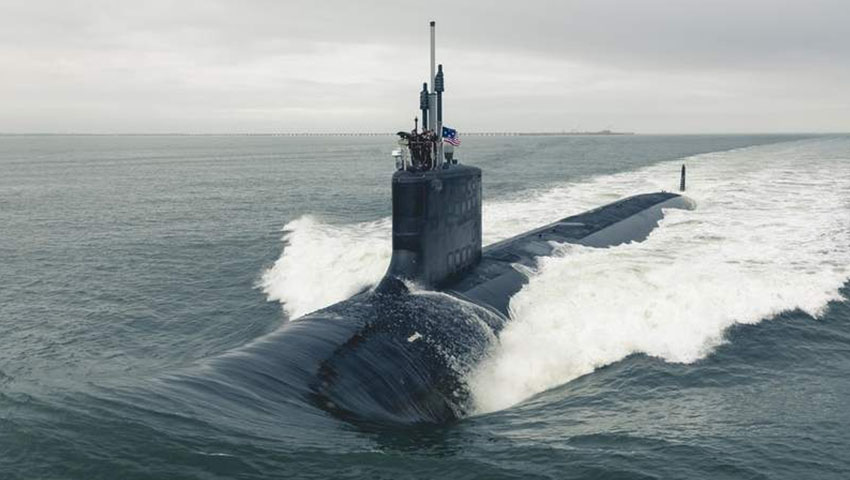The federal opposition leader has shed light on his preferred pathway for Australia’s future nuclear-powered submarine program.
To continue reading the rest of this article, please log in.
Create free account to get unlimited news articles and more!
Former defence minister Peter Dutton has thrown his support behind the acquisition of US-designed Virginia Class submarines for the Royal Australian Navy under the AUKUS agreement.
According to Dutton, the Virginia Class submarine — currently under consideration by the Nuclear-Powered Submarine Task Force, along with the UK’s Astute Class platforms — became the “obvious” choice.
The federal opposition leader made particular note of the platform’s capability benefits.
“It is capable of launching missiles vertically, and is a mature design,” he wrote in a piece published by The Australian.
Unlike the UK’s Astute Class, he added, construction of the Virginia Class would involve fewer modifications.
“The British option would have involved a new design, which is problematic in any ship build because time and cost blowouts and design faults are inevitable,” he observed.
Notably, Dutton touted the possibility of an off-the-shelf purchase of two Virginia Class submarines before 2030.
“I believed it possible to negotiate with the Americans to acquire, say, the first two submarines off the production line out of Connecticut,” he wrote.
“This wouldn’t mean waiting until 2038 for the first submarine to be built here in Australia.
“We would have our first two subs this decade. I had formed a judgment that the Americans would have facilitated exactly that.”
The two initial submarines would be in addition to a further eight vessels built in South Australia, taking the total size of the prospective RAN fleet to 10.
To appease the British, Dutton suggested the government could have considered expanding BAE Systems’ Hunter Class frigate program or exploring other work opportunities for British contractors.
The opposition leader went on to criticise what he has described as “alarming” comments from newly appointed defence minister Richard Marles, who recently said he is “open” to the possibility of developing a “son” of Collins platform to fill the interim capability gap.
Minister Marles told the ABC addressing the capability gap is his “number one priority”.
“…It’s important to state upfront that there is no more important platform that Australia has in terms of shaping its strategic circumstances than having a capable long-range submarine,” the Minister said.
“It's why making sure that we have the successor to Collins in place as quickly as possible in a form which is highly capable is critically important.”
Minister Marles said the 2040s delivery timeline for the nuclear-powered submarines is “too far away”.
“I feel confident that within that period we can make substantive decisions which advance the whole question of where we go with submarines, how we get our capability sooner and how we deal with the capability gap,” he added.
But according to Dutton, a diesel-electric platform delivered in the 2030s would be redundant, given China’s progress in the undersea warfare space.
“It is unfeasible because [Minister Marles] wouldn’t have the new class of subs (with old diesel-electric systems) in the water before the Chinese have the technology making them easily detectable and inoperable,” he wrote.
“And as defence leaders here and in the US strongly advised me, Australia doesn’t have the construction workforce, let alone the crew capability, to run three classes of submarines.”
[Related: US Navy commissions new Virginia Class sub]

 Login
Login







